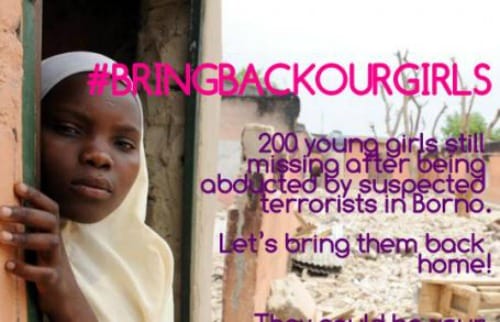I’ve been to just over 10 countries in Africa and there is a common thread linking them all: one of rising economic prominence and the other more sinister story of the consistent repression of rights and freedoms that penetrate every aspect of culture. It doesn’t matter if you are in Morocco or South Africa, Kenya or Nigeria, the “new” African society has maintained some vestiges of the old that must die a quick death in order for the continent to achieve sustainable growth.
SEE ALSO: BREAKING: Boko Haram Claims Responsibility for Missing Girls, Threatens To Sell Them
Those of us interested in telling a new African story are often inclined to speak about fashion, entrepreneurship, film, and technology as the requisite niceties of being the new girl at the party. But even I, who cringed just yesterday as my 8 year old talked about how Africa is dangerous because of the lions and monkeys, must admit that there are difficult conversations to be had.
In our desire to “rebrand” Africa, we mustn’t close our eyes and ears to the atrocities of the continent in the hopes that somehow they will just go away.
I spent nearly a decade crafting and promoting campaigns designed to bring awareness (and $$$) to the horrors happening in villages across the Global South — most of them damaging women and girls — so it was a strange feeling to hold my social media “breath” before hitting RT, Like, or Share on all things involving #BringBackOurGirls.
RELATED: Concerned Nigerian-American Starts 200 Roses Ng To Bring Awareness To Missing School Girls
I couldn’t perform this Internet advocacy when the conflict in my mind was so vivid: At the same time that I was watching my social feed fill with news, commentary, and instagram photos asking for the girls’ release, my e-mail inbox was filled with messages about the World Economic Forum (WEF) Africa and whether I am attending.
Do I know about the latest agriculture accord? What does it mean for Nigeria to have surpassed South Africa? These are all valid questions…in a vacuum.
As much as I wanted to weigh in on these questions and pen an article about what this means for Nigeria, Africa, and the world, I couldn’t help but think about the fact that all of the power players in Africa would be touching down in a country where nearly 300 young girls were abducted from their school.
As these men (and women) meet, those girls could be sold, tortured, raped, or killed in the arms of a growing, but well-known shadow in Northern Nigeria.
RELATED: Mothers Break Down at Abducted School Girls Protest
Would the G8 be able to meet in Connecticut within weeks of the Newton massacre without having gun rights and school safety prominently on the agenda?
Doubtful.
So how can it be that the people in the world who are best positioned to make a difference in this situation can carry on with business as usual in Abuja?
The answer is simple: this time is for the people.
It doesn’t take international actors to be outraged for the average person in Lagos or Abuja to understand the atrocities being committed by Boko Haram in the same way it didn’t take a presidential statement to convince Mothers around the United States that 6 year olds being killed at gunpoint is not OK.
#BringBackOurGirls is a chance for the continents’ influencers to do something more than grow their business, write for the Guardian, or speak on a panel. It is a real opportunity to use the access and wealth obtained by the few, for the benefit of the many.
WEF Africa will issue a range of resolutions that may or may not galvanize better governance, more transparency, and wide-reaching economic opportunities on the continent but #BringBackOurGirls and what happens as a result of it has the potential to catalyze the belief in the value of collective action across Africans on the continent and in the diaspora.
The residents of Borno State in Nigeria; Kitchanga in DRC; or Gaga, Central African Republic have been isolated in the attempt to change the trajectory of Africa’s representation to the world.
Their plight has been left to governments and NGO’s now that talking about these conflicts is falling out of fashion.
If we can use our voices to #BringBackOurGirls we can also #SaveOurSons from militancy or #SaveOurCouples from undue persecution because of who they choose to love.
This campaign, with its deservedly global reach, should speak to the hearts of the citizens of each nation where conflict and injustice persist, spurring organized action and resistance to the institutional failures that allow a breakdown in security across an entire state to happen at the same time that investors are being courted to Africa’s No. 1 economy.
This success — if achieved — will reach further than any policy agreement because it will mean that Africa is punching beyond the weight of its resources and speaking with the weight of its soul.










